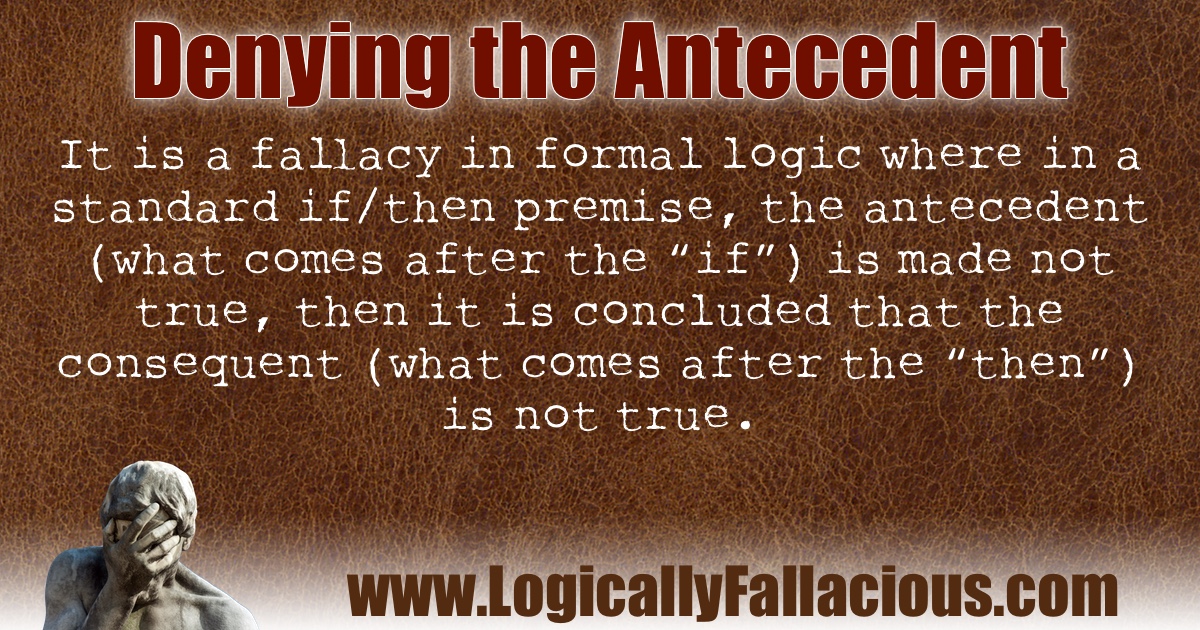(also known as: inverse error, inverse fallacy)
Description: It is a fallacy in formal logic where in a standard if/then premise, the antecedent (what comes after the “if”) is made not true, then it is concluded that the consequent (what comes after the “then”) is not true.
Logical Form:
If P, then Q.
Not P.
Therefore, not Q.
Example #1:
If it barks, it is a dog.
It doesn’t bark.
Therefore, it’s not a dog.
Explanation: It is not that clear that a fallacy is being committed, but because this is a formal argument following a strict form, even if the conclusion seems to be true, the argument is still invalid. This is why fallacies can be very tricky and deceptive. Since it doesn’t bark, we cannot conclude with certainty that it isn’t a dog -- it could be a dog who just can’t bark.
The arguer has committed a formal fallacy, and the argument is invalid because the truth of the premises does not guarantee the truth of the conclusion.
Example #2:
If I have cable, then I have seen a naked lady.
I don’t have cable.
Therefore, I have never seen a naked lady.
Explanation: The fallacy is more obvious here than in the first example. Denying the antecedent (saying that I don’t have cable) does not mean we must deny the consequent (that I have seen a naked lady...I have, by the way, in case you were wondering).
The arguer has committed a formal fallacy, and the argument is invalid because the truth of the premises does not guarantee the truth of the conclusion.
Exception: No exceptions.
Tip: If you ever get confused with formal logic, replace the words with letters, like we do in the logical form, then replace the letters with different phrases and see if it makes sense or not.
